What’s the difference between a listing that says ‘Contingent’ as opposed to ‘Pending’ or ‘Under Contract?’ This is one of the most frequently asked questions we get from real estate buyers. In this article, we’ll define each of these listing statuses, discuss why you may see the same listing under a different status on different websites, and explain the finer details about what these statuses mean in our market.
Definitions of MLS Listing Statuses
Real estate listing statuses are controlled in the MLS by the listing agent, so let’s first start by discussing the different MLS Statuses. The information in MLS is then fed to all other real estate websites. But, those other websites may sometimes change the terminology.
Active Listings
Active listings in MLS are simply that. These listings are active on the market and are available for sale. They may have offers, but no contract.
Under Contract-Show Listings
‘Under Contract’ listings can be broken down into ‘Show’ and ‘No Show.’ These properties are ‘Under Contract’ with a buyer. Show listings can still be shown for another buyer to make a backup offer. Some MLS systems in other parts of the county may call this status ‘Backups Requested.’
Under Contract – No Show Listings
‘Under Contract – No Show’ listings are pending sales where the seller no longer wishes to show the property. This could be because the existing contract looks very solid or because the seller no longer wants the hassle of having to prepare the home for showings.
Online Under Contract Listing Statuses
Once the status is changed in MLS, this data is fed to national websites like Zillow.com, Realtor.com, and Trulia.com. It also goes to independent brokerage websites like FreestoneProperties.com. Depending on the website, the terminology (pending, under contract, etc.) may be different, and this can cause confusion for buyers and sellers.
In our market, ‘Contingent’, Pending’, and ‘Under Contract’ are all variations of the same listing status. You may see terms online or even on real estate signs that say ‘Sale Pending’, ‘Under Contract’, or ‘Backups Requested.’ All of these terms mean that the listing is ‘Under Contract’ with a buyer. During this time, the seller is contractually obligated to the buyer, even if an additional higher offer is presented to the seller.
As a side note, once the contract is signed by both buyer and seller, it usually marks the beginning of the Buyer’s Due Diligence Period. Realtors in North Carolina use “Due Diligence” contracts, and that means that buyers in North Carolina have the right to back out of a deal for any or no reason during the Due Diligence Period. This is the only contingency in the contract. The buyer needs to use this time period to do inspections, procure financing, and any other due diligence that the buyer feels is necessary prior to closing.
For more information about Due Diligence real estate contracts, read our Guide to the North Carolina Home Buying Process. If you’re interested in a home for sale that is under contract, you may want to inquire whether or not the buyer is still in Due Diligence. Contracts in Due Diligence have a higher probability of falling through than contracts that have passed Due Diligence.
Does Contingent mean Pending?
In North Carolina, a ‘Contingent’ listing is simply a listing that is under contract with a buyer. However, in the past, a contingent contract referred to a situation where the buyer still needed to sell another house in order to close on the home they are buying. So, many buyers, sellers, and real estate agents still use the term ‘Contingent’ to refer to an offer or contract that will not close unless the buyer first sells another piece of real estate.
Until July 1st, 2019, it was fairly common to see contracts with a ‘Contingent Sale Addendum’ that gave the buyer an out if the sale of their existing home fell through. As of July 2019, that addendum is no longer used by North Carolina REALTORS, and we do not write contracts that provide for a contingency to sell another home. There is still a section in the purchase contract that discloses the buyer’s need to sell another home, but the buyer should plan to close on that sale during the Due Diligence Period in the contract of the home they are buying. The purchase contract is not contingent on the sale of the buyer’s other property.
So when you see the term ‘Contingent’ on a website like Realtor.com, it simply means that the real estate listing is under contract with a buyer.
What does Pending Sale Mean?
When you see Pending on a listing online, it means the same as Contingent in the Asheville market. It simply means that the property is under contract with a buyer. The contract could still be in the Due Diligence process, or it could have moved past that date. Either way, the real estate transaction is under contract but hasn’t closed yet.
What Does Under Contract Mean in Real Estate?
‘Under Contract’ is probably the most accurate way to describe a pending or ‘contingent’ sale. It means the same as the other statuses above; a buyer and seller have agreed to terms and have executed a contract. But, the contract has yet to go to closing.
What Does Contingent Mean on Zillow and REALTOR.com?
If you look at the same listing on multiple websites, you will sometimes find different terms for the status of that listing. As an example, here is a listing for 15 Red Plum Lane in Black Mountain, NC, a home that was recently sold by one of our Asheville real estate agents who represented the seller. This screenshot was taken while it was still ‘Under Contract.’
Our website makes a distinction between homes that are “Active Under Contract” or “Pending,” depending on whether or not the home is still available for showings. If the home is no longer being shown, the status is “Pending.”
Our site is the only one of the three using the most accurate wording for the listing status. They all mean the same thing, but the wording can be confusing, especially if you are coming from a market where a ‘Contingent Sale’ is common.
Do Websites Continue to Display ‘No Show’ Listings?
As mentioned before, MLS listings can also be categorized as ‘Under Contract – No Show.’ These listings will still show up on some websites, but not all. On our site, they still show up as ‘Pending.’
Our site considers a ‘No Show’ listing to be ‘Pending.’ If the MLS information was ‘Under Contract – Show’, our website would show it as ‘Active Under Contract.’ Regardless, if the purchase contract on this home falls through, it will revert to ‘Active’ status and will come back on the market and back on all real estate websites.
Can You Make an Offer on a House that is Contingent or Under Contract?
Absolutely! A seller can accept as many contracts as they want, but the additional contracts are considered backup contracts. In North Carolina, we use a Backup Contract Addendum to specify that the backup contract will go into effect once the ‘primary buyer’ backs out and the seller provides notification of this to the ‘backup buyer.’
It’s important to note that many buyers (and buyer’s agents) prefer to simply monitor a listing instead of making a backup offer. But if the buyer really loves the property, they may want to consider a backup offer. If the seller has a strong backup contract in place, they may be less willing to re-negotiate repairs and other terms with the primary buyer. This can increase the odds of the primary contract being terminated by the primary buyer and the backup buyer getting to buy the property.
It’s also important to note that when making a backup offer, the seller may be in a better position to negotiate. They already have one buyer, and so they may not feel the need to negotiate much with a second buyer. The seller can’t sell to the backup buyer unless the primary backs out, so why would the seller consider selling at a lower price? Even if the backup contract is for a higher price, the seller is contractually obligated to the primary position buyer.
If a real estate listing has been under contract for a few weeks and you’re interested in seeing it or making a backup offer, it’s a good idea for the buyer’s agent to inquire with the seller’s agent to see how solid the existing contract is. If we discover that the buyer’s financing is looking questionable or perhaps the buyer is getting cold feet, it may well be worth putting in a backup offer. On the other hand, we may discover that the contract is heading to closing in the next few days, and you would be better off focusing your energy and emotions on a different home.
How Often Do Pending Contracts Fall Through?
In a hot market, pending sales usually go through to closing. But it’s very easy for buyers to back out in North Carolina because of the “due diligence period”, so it does happen. And buyers don’t even have to provide a reason to back out of a contract. This is another good reason to let us monitor the current contract by communicating with the seller’s real estate agent.
If there’s a pending sale that you’re interested in, let us know and we’ll be glad to check it out!


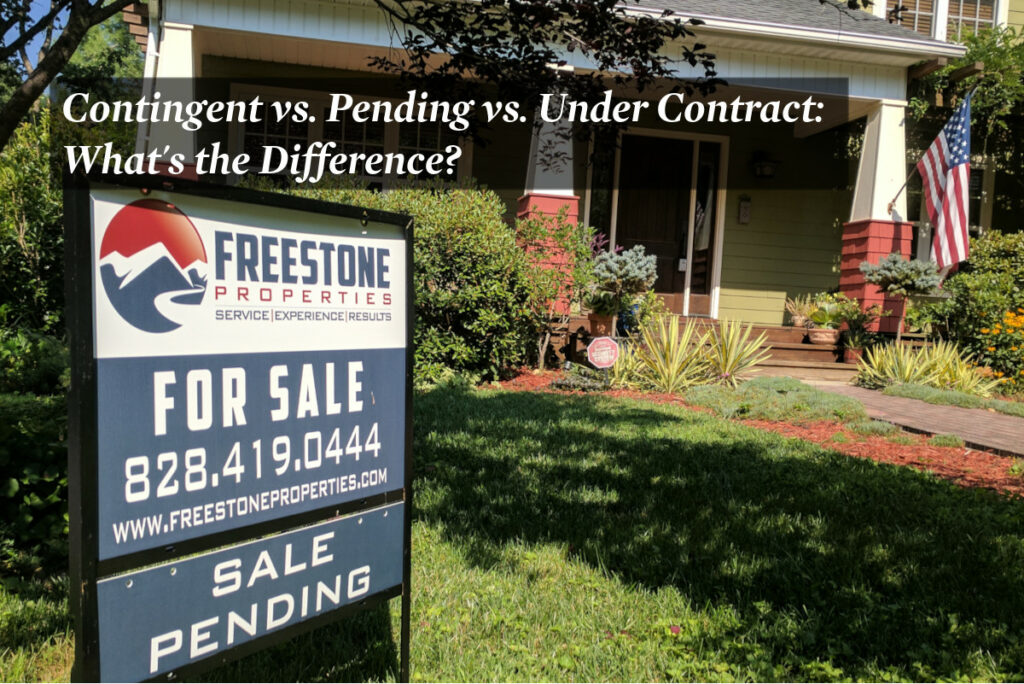
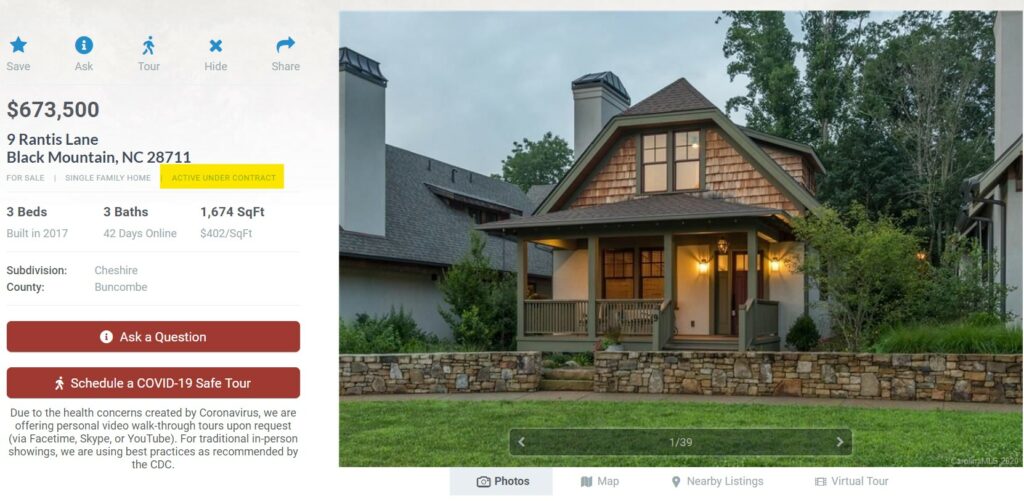
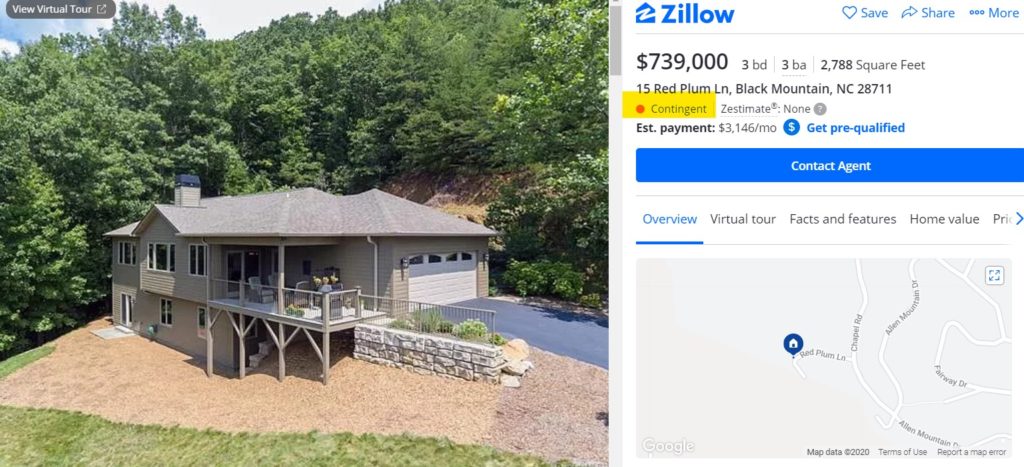
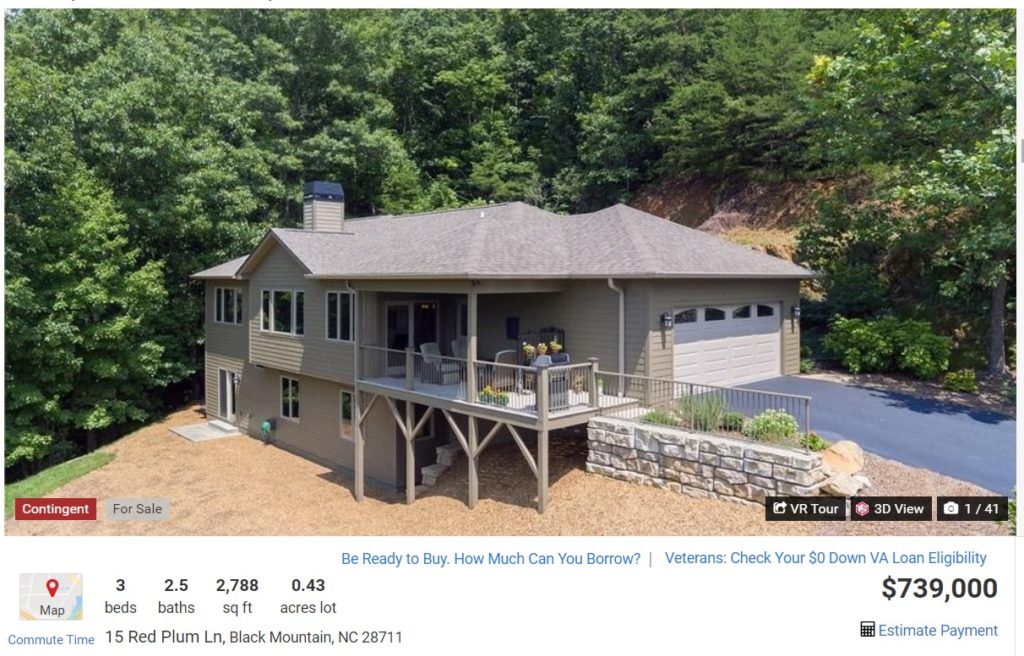
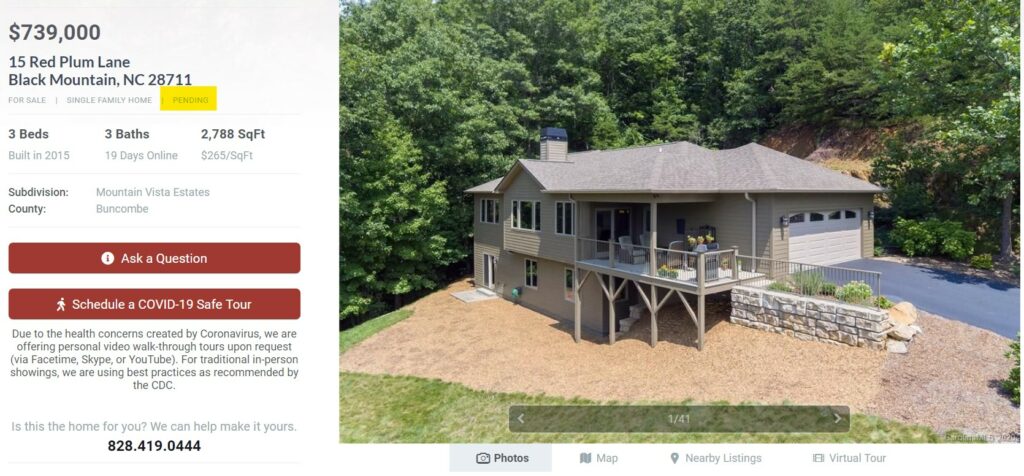




Leave a Reply